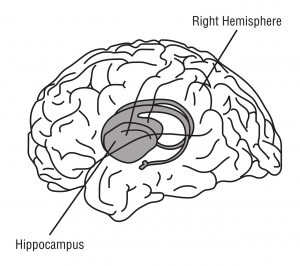How to Know if You Have Depression

We all experience moments where we feel down, melancholy or have what is known as a case of the blues. This is probably why there are so many words and phrases to express that feeling and why the blues is a musical genre. The low feeling is also sometimes referred to as depression, but is what you are feeling clinical depression? Do you know how to distinguish between major depression and ordinary, run-of-the-mill sadness?
A History of Depression
Humanity has a long and complicated history with depression. According to an article called, “The History of Depression,” the idea of depression first appeared in writing in the second millennium B.C.E. In those texts, depression and other mental illnesses were believed to be the result of demonic possession. Sadly, this belief persisted for quite some time and reached across many cultures.
In those ancient times, depression was treated with cruel, primitive methods. Despite the overwhelming belief that demons were at fault, there were some Greek and Roman doctors who were convinced that depression was a psychological affliction. Instead of starvation and other disturbing methods of treatment, these early, forward-thinking doctors prescribed exercise, diet, music and even an old-fashioned form of medication that psychiatrists would not be able to legally prescribe today.
The original stigma of depression was due to a lack of understanding that is best left in the past. Over the years, an expanding body of research increased our understanding of depression. Advancements in treatment continue to this day.
What is Depression?
History aside, what is depression and how is it defined? According to the National Institute of Mental Health, “depression is a common but serious mood disorder.”
Symptoms of depression, like a persistent feeling of sadness and loss of interest in one’s life and daily activities, must linger for at least two weeks for a diagnosis of major depressive disorder or clinical depression to be made.
Signs of Depression
There are many symptoms of depression, and they vary in intensity from mild to severe. An individual suffering from depression may feel an unbearable burden of sadness, hopelessness, agitation or complete lack of self-worth.
Depression is not limited to one’s emotional state, either. Symptoms can extend to physical manifestations like changes in appetite that can lead to excessive eating and weight gain or lack of appetite and weight loss.

The overeating associated with depression doesn’t mean occasionally overindulging in too many tacos or slices of pizza. Those delicious snacks get the best of all of us sometimes. With depression, overeating starts to become a regular occurrence.
Conversely, a person with depression may lose interest in food. To clarify, depression isn’t missing an occasional meal when you are busy. Depression is lacking the desire to eat and failing to eat often enough for weight loss to occur.
Sleep is also commonly affected by depression. A person with depression may have insomnia, or conversely, he or she may frequently sleep for abnormally long periods of time. The person may experience fatigue, physical pains, digestive problems, difficulty concentrating, memory disturbances and slower thought, speech and movements.
A person undergoing an episode of depression may completely lose interest in all previously enjoyable activities. The person may withdraw and feel confused about why he or she is plagued by these symptoms and the corresponding negative feelings. At its worst, depression can lead to suicidal thoughts or actions.
You are Not Alone
If you believe you may be suffering from depression, you are not alone. According to the World Health Organization, 264 million people in the world suffer from depression. An estimated 17.3 million adults in the United States, which represents a staggering 7.1 percent of the adult population in this country, experienced a major depressive episode according to the 2017 National Survey on Drug Use and Health.
The American Psychiatric Association states that one in six people will experience depression at some point during their lives.
Possible Causes of Depression
There is no one definitive cause of major depression. A multitude of factors may contribute to the development of this illness. However, researchers made interesting discoveries when they analyzed the brains of individuals with depression and compared them with the brains of those who had never experienced clinical depression.

The people studied who had a history of depression had a smaller hippocampus, which is notable for many reasons, especially due to the association with serotonin. A 2006 article entitled, “Serotonergic modulation of the limbic system,” in Neuroscience and Biobehavioral Reviews stated, “All the serotonin receptor families are remarkably expressed in hippocampus, which is part of the limbic system, a whole structure related with memory processing, emotional association with memory, judgment, affect, and motivation or the organization of planned actions.”
While it is still undetermined why the hippocampus would be smaller in depressed individuals, some researchers believe it is a result of the damaging effect of the stress hormone cortisol, which is produced more abundantly in those who suffer from depression.
Depression is somewhat more common in people who are closely related to individuals who have the mood disorder. However, there is no one gene believed to be responsible. In fact, researchers speculate that many genes and their interactions contribute to depression. Having a close relative who suffers from depression does not mean that you will end up with it.
Other factors like trauma, past situations of violence or abuse, stress, poverty or even physical ailments and certain medications may contribute to the development of clinical depression.
Once a person does suffer from clinical depression, symptoms are often noticed by close friends, coworkers or relatives.
Treatment Options
Do some of these symptoms describe what you are experiencing? If so, what you are feeling may be more than a temporary case of the blues.
Depression is not something that you should ignore. It is important to seek treatment. There are many possible causes for depression, but remember, it is an illness, not a choice. It is also a good idea to see a doctor to rule out medical, non-psychiatric illness or chronic pain as a potential cause of depression.
The good news is that depression is treatable. Once diagnosed, most people respond well to treatment and many overcome it entirely. For some, medication may be needed, but for others, psychotherapy may be enough to treat depression.
Along with therapy sessions, modern therapists may even suggest something similar to the forward-thinkers of the past involving diet and exercise, but don’t worry, that is where the similarities with treatments of the past end.
If you or someone you know in Jacksonville, Florida or the surrounding areas may be suffering from depression, contact me or one of our licensed mental health counselors at the Jacksonville Center for Counseling.